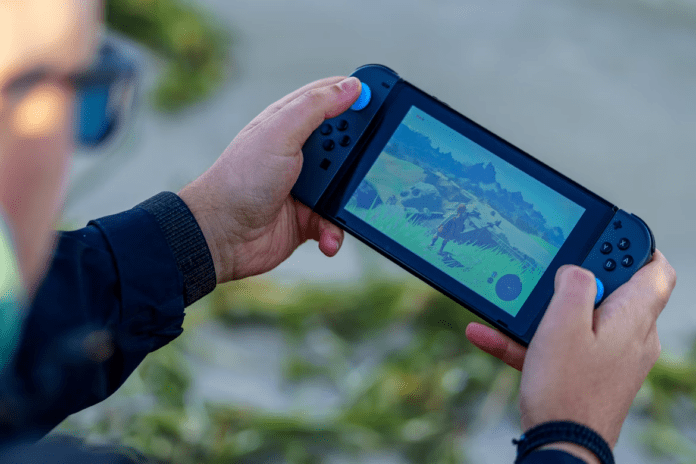Video games have entered a new era of online play. Even iconic single-player games like the recent Zelda: Tears of the Kingdom make use of the web to back up your progress to the cloud while you explore Hyrule.
Online integration is largely a good thing for games. Connecting to a secure server allows you to play with friends and download updates or DLCs when they are released. However, a 24/7 connection to the web can put your data at risk.
As a gamer, you may be unaware of the data security issues inherent in console and PC play. Unfortunately, even industry giants like Nintendo are susceptible to hacking, as 300,000 users had their accounts compromised in mid-2020.
Protecting your data while gaming can be tricky. However, it may be time to start reading those contracts and installing anti-malware software on your devices.
Securing Your Accounts
If you’re an avid gamer, you likely have a few different accounts scattered across the web. Every new game seems to require a password-secured account just to start playing the game. Secure your accounts by regularly updating your passwords across all your devices. Start by checking on your accounts with popular services like:
- BattleNet;
- Activision;
- Electronic Arts;
- Uplay;
- Steam;
- Epic.
This isn’t a comprehensive list but, if you’ve ever played titles like Overwatch or League of Legends, you almost certainly have an active account with one of these providers.
If you like your accounts to devices like tablets, phones, or a PC, you can improve your security game by going passwordless. Going passwordless doesn’t mean that you throw caution to the wind and use the same password for all accounts — that would invite all manner of hackers and scammers to your account. Instead, use passwordless biometric authentication like facial recognition and fingerprint recognition.
Remember to regularly update the software you use to game, too. Most games will run poorly with outdated software, too, meaning a quick update to your PSN or BattleNet account will improve your gaming experience. However, failing to update your OS or console software will put your data at risk and undermine the security built into otherwise trustworthy platforms.
Trusted Platforms
Nothing beats downloading a newly released game and playing a next-gen title before your friends do. However, if a game is being released by a new publisher, it may be worth holding off to ensure that their cybersecurity game is up to standard.
Buying new titles with caution can save you from unfinished games, too. Titles like CD Projekt Red’s CyberPunk 2077 are notorious in the gaming industry for bugs and, in 2021, according to the BBC, the developer was exposed by a ransomware attack. The ransomware attack didn’t lay claim to any personal data but was a reminder that malicious actors can undermine the security of “small” studios like CD Projekt Red.
Preventing ransomware attacks on your personal devices can be tricky. However, you can protect yourself against ransomware attacks by installing multi-factor authentication across all your devices and deleting any emails that seem suspicious or are phishing attempts. If you are targeted by ransomware, you should report the attack to the law. Never pay the ransom fee, as agencies can offer decryption services that will quickly restore your device and remove the malicious actor.
Privacy Settings
If you’ve been gaming for a while, you may have been sent a few private messages via Xbox Chat, Steam, or PlayStation Network. Receiving a message from another player can add to the experience of gaming — particularly if you’ve just won a close-run game. However, you need to firm up your security settings if you want to protect your data while gaming.
- PlayStation Network: Navigate to the “Users and Accounts” and adjust all of your privacy settings to “Friends Only”. This will effectively make your account invisible to players outside of your friends list who want to get in contact with you.
- Xbox: Navigate to “Profile & Settings” the access “Xbox Privacy”. Consider setting your account to the “Child” privacy setting, or select “Adult” and customize your privacy in the “View Details & Customise” tab
- Steam: Click on your profile name and navigate to the “Privacy Settings” in the dropdown menu. Set “My profile” to “Private” for maximum security or “Friends Only” if you want trusted friends to find your profile online.
Some games also offer an extra layer of security in-game. For example, popular titles like Call of Duty: Warzone allows you to turn on “Streamer Mode” while gaming. This will set your profile name to a randomly generated name, meaning fellow gamers cannot see your real username. This mitigates the risk of phishing attacks and adds an extra layer of security to your personal data.
Conclusion
Gaming is dominated by online multiplayer titles and web-based functionalities. Even single-player titles now use cloud-based storage to keep all of your saves in order. As a gamer, you need to protect your personal data by updating your software regularly, installing anti-malware software, and protecting your account with the right privacy settings. This won’t guarantee the safety of your personal data, but it will make it that much harder for malicious actors to undermine your account security.
The Fairy’s Song ready to enchant consoles










![PlayStation Gaming News: Under Night In-Birth Exe:Late[st] to Cast Its Shadow on North America PlayStation Gaming News: Under Night In-Birth Exe:Late[st] to Cast Its Shadow on North America](https://www.hgunified.com/wp-content/uploads/2018/01/12-2-218x150.png)



